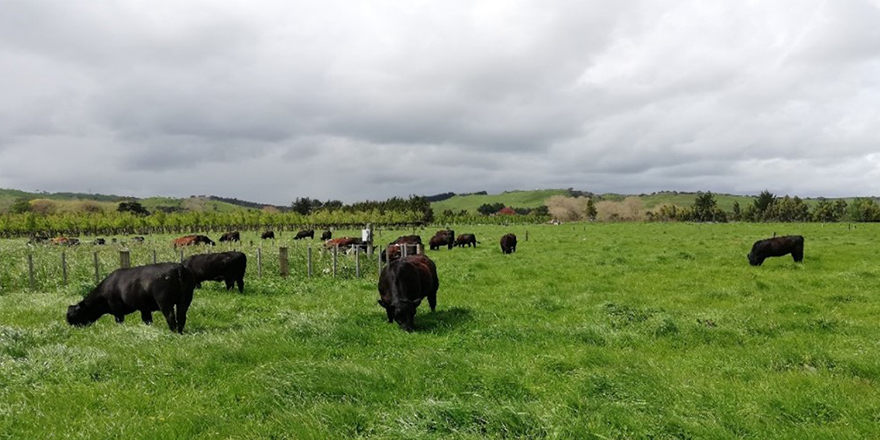
Executive summary
As the New Zealand dairy sector navigates increasing consumer scrutiny, technological disruption, and regulatory expectations, the role of on-farm event data has come into sharper focus. This research set out to answer a simple but nuanced question: Are dairy farmers incentivised to know about and share accurate on-farm event data, or do they prefer to present data that is favourable in the eyes of downstream consumers?
Drawing on interviews with dairy farmers, milk processors, and agri-tech firms, this study reveals a nuanced landscape shaped by incentives, trust, control, value perception, and the broader data ecosystem. It introduces the “make/save/comply” framework, a practical model that captures the motivations behind farmer engagement with data.
Key Finding: Farmers Are Rational, Not Resistant
The overwhelming conclusion is that farmers are willing to share data however it is conditional, based on a rational assessment of:
- Control over who sees the data and for what purpose.
- Trust in the requesting party and the data’s intended use.
- Tangible value returned from sharing, whether financial, operational, cultural or strategic.
Data sharing occurs within a spectrum rather than a binary choice. When these three conditions are met, farmers demonstrate a high degree of professionalism and transparency. When they are not, farmers may lean toward selective or minimal disclosure, not to deceive, but to protect their business from misinterpretation or unintended consequences.
Introducing the “Make/Save/Comply” Framework
A central contribution of this research is the “make/save/comply” framework, which emerged from interviews across all stakeholder groups. It categorises the perceived value of data sharing as:
- Make – Increasing productivity, accessing incentive programmes, genetic gains, or market premiums.
- Save – Reducing cost, time, and complexity (e.g., lower vet bills, automated compliance).
- Comply – Meeting industry, regulatory, or processor obligations to operate.
This model resonates strongly with both farmers and agri-tech firms and provides a common language for discussing the incentives underpinning data sharing. Importantly, compliancerelated data (the “comply” category) was identified as the most sensitive, often invoking hesitation unless communication and support are strong.
Trust and Control as prerequisites
Across interviews, trust consistently emerged as a key enabler of accurate data sharing. Farmers are more willing to share when:
- They understand the purpose of the request.
- There are clear boundaries around data usage.
- They receive insights or benefits in return.
- They can provide context around the data to avoid misinterpretation.
Trust underpins the Make/Save/Comply framework. Where trust is low or the requesting party is seen as overreaching, farmers become more cautious. Examples include fears that lameness or mastitis data, without context, could unfairly disadvantage them. Some processors and agri2 tech firms are actively addressing this by developing “managed connections” features, improving transparency and ensuring farmers retain control.
Evolving customer expectations and their impact
One of the forces driving increased interest in farm-level data is the shift in customer expectations, particularly among key corporate commodity buyers such as Nestlé and Mars. While end consumers are not always seen as the direct drivers, major commodity customers now demand proof of sustainability, traceability, and animal welfare.
Milk processors have responded with incentive frameworks like Fonterra’s Co-operative Difference, Synlait’s Lead With Pride, and Miraka’s Te Ara Miraka, all of which depend on farmer-supplied data. These programmes offer financial bonuses (up to $0.20/kgMS in some cases) and signal market alignment but also raise the stakes for farmers in terms of the nature and accuracy of what they report.
Favourable vs. accurate: a subtle tension
There exists a delicate tension between sharing accurate data and presenting favourable data. This is not rooted in deceit, but in defensiveness, farmers want to avoid being penalised for anomalies that may be beyond their control or misunderstood without context. Selective data reporting is most likely when:
- Incentives or penalties are tied to thresholds.
- The data’s interpretation is unclear.
- There is a lack of trust in the party requesting it.
However, where there are strong relationships and mutual benefit (particularly with agri-tech firms providing operational insights), farmers tend to provide complete and accurate data. This reveals the importance of framing the request for data as a tool for support, not surveillance.
The role of agri-tech firms and system design
Agri-tech firms play a pivotal role in shaping the data-sharing environment. Farmers show high levels of trust when these firms:
- Focus on enabling decision-making, not just data collection.
- Design products around practical value rather than compliance pressure.
- Prioritise interoperability and reducing duplication.
Integration across systems remains a major frustration for farmers. Despite progress from platforms like LIC’s MINDA Integrations, many still report the burden of manually transposing data between platforms. This duplication erodes the incentive to share and diminishes data quality.
Reframing relationships: the coaching analogy
To help clarify roles and expectations, this research introduces a novel “coaching team” analogy to describe how farmers interact with various stakeholders, processors, agri-tech firms, consultants, and regulators. Just as a professional athlete works with a team of specialised coaches (e.g., performance analyst, strength and conditioning coach, nutritionist), so too do farmers engage with domain-specific experts.
Each coach has a role and a time horizon:
- Attach coach: Supporting national branding and premium market access.
- Sports psychologist: Driving long-term innovation.
- Rehabilitation coach: Supporting animal health.
- …and others.
This analogy helps stakeholders contextualise data requests in a way that aligns with their role and relationship with the farmer. It also gives farmers a useful mental model for evaluating the relevance of requests, helping to reduce friction and increase cooperation.
Final reflections
This research finds that data sharing is neither inherently problematic nor universally embraced. Rather, it depends on:
- Relevance: The data request must align with the role and relationship of the requester.
- Value: The farmer must see a clear and proportionate benefit.
- Trust and control: The data must be handled ethically, securely, and transparently.
Where these conditions are met, farmers are willing and even eager, to share data that is accurate, timely, and actionable. Where they are not, favourable data or minimum compliance becomes the fallback.
The challenge for the dairy sector, and the broader agri-food industry, is to build a shared data culture grounded in trust, clarity, and mutual benefit. This includes:
- Aligning incentives with outcomes.
- Investing in interoperability.
- Standardising data governance practices.
- Educating farmers on data value and sovereignty.
- And above all, respecting the farmer’s role as a steward of both land and information.
In a world where market access, compliance, and competitive advantage are increasingly data-dependent, creating a farmer-centric data ecosystem is not optional, it’s essential.
Grant Kay




